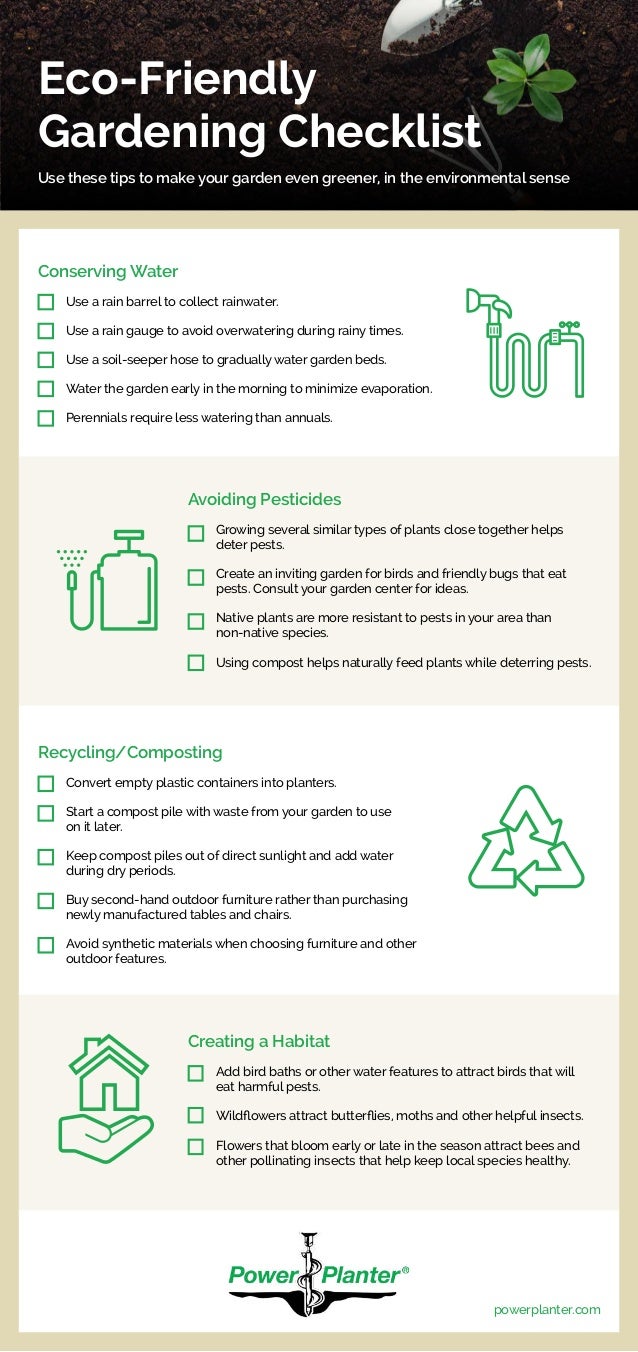Landscape and garden design is fun. There, we said it, the secret is out. From introducing a rain garden to installing your first raised garden bed, the art of designing your own landscape/garden is a fulfilling endeavor. Yet benefits are not just reserved to the individual household. Gardening is, to a certain extent, inherently friendly to the environment.
Here are a few environmentally friendly practices you can use in your garden right now:
- Eliminate Synthetic Fertilizers & Pesticides
One of the more environmentally impactful changes you can make in your garden or landscape is to stop using synthetic fertilizers and pesticides. While many of these are fast-acting and marketed as super-effective, there are numerous consequences to using them that all should pay attention to. For one, synthetic fertilizers do nothing to improve soil quality. They are used to give plants a quick jolt of nutrients, but do not help to stimulate soil in the long run. Additionally, both synthetic fertilizers and pesticides, being water soluble, can leach into storm drains, streams, and your water supply, causing a number of detrimental effects.
Instead of synthetic fertilizers and pesticides, look for other ways to improve the quality of your soil. One of the best ways to accomplish this is to amend your soil with a rich compost to improve the tilth and add nutrients..
- Focus on Native Plants
While a foreign (“non-native”) plant may catch your eye at the local gardening center, think about incorporating more native plants into your garden. Benefits associated with planting native species include higher pest and disease tolerance, reduced watering needs, and lower maintenance. Much of the reason these benefits exist are because native plants have had thousands of years to grow and adapt to a specific environment, thus making them much more tolerable to a region than foreign species.
- Increase Beneficial Bugs by Building an Insectary
An insectary is simply a portion of your garden filled with plants that attract beneficial bugs. The best way to increase beneficial bugs in a particular area is to 1) figure out which insects are beneficial pollinators and predators, and 2) find out which plants attract said beneficial insects. For a great refresher on what insects are good and bad for your garden, check out this great page put together by SodGod.
- Use Composts & Natural Amendments to Stimulate Your Soil
Somewhat going hand-in-hand with cutting out synthetic fertilizers and pesticides, is the practice of incorporating composts and natural amendments to stimulate your soil. Not only do they contain beneficial nutrients critical for soil quality and plant growth, these composts and amendments are significantly more beneficial for the environment than any synthetic fertilizer or pesticide. Instead of spraying on a quick remedy solution, integrating composts and amendments into a soil improves soil quality for the duration.
- Garden, Garden, Garden!
One of the best ways to be environmentally friendly in the garden is to simply keep gardening! Whether you’re planting some beautiful shrubs or trees around the yard that increase carbon dioxide or trying out some new vegetables to use in the garden (thus cutting the costs associated with buying produce from the grocery store), gardening is a great way to reduce your environmental footprint.
Here’s a checklist by PowerPlanter.com for creating an eco-friendly garden

